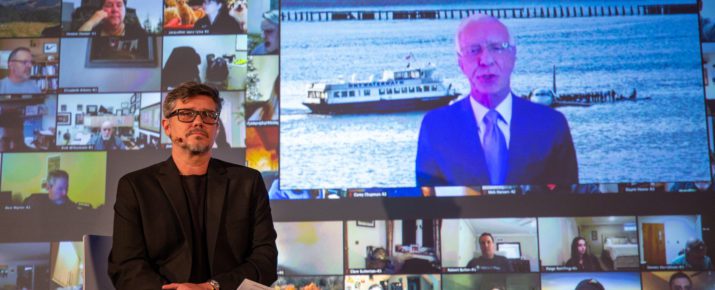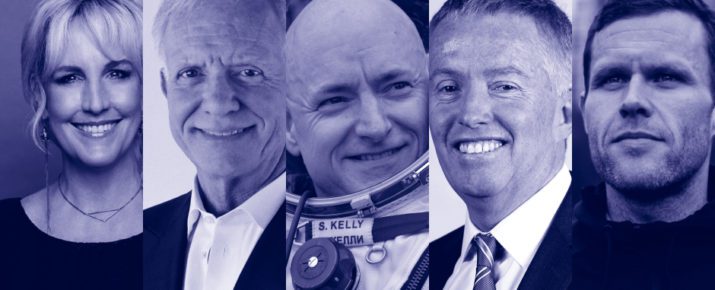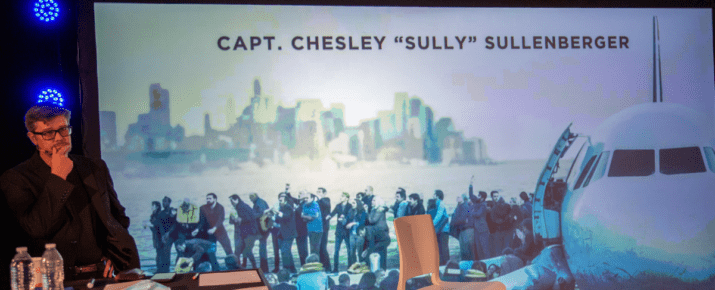The Sky Is Not The Limit: A Conversation with Astronaut Captain Scott Kelly
From Surviving To Thriving Virtual Summit | By | 6 Nov 2020 | 3 minute read
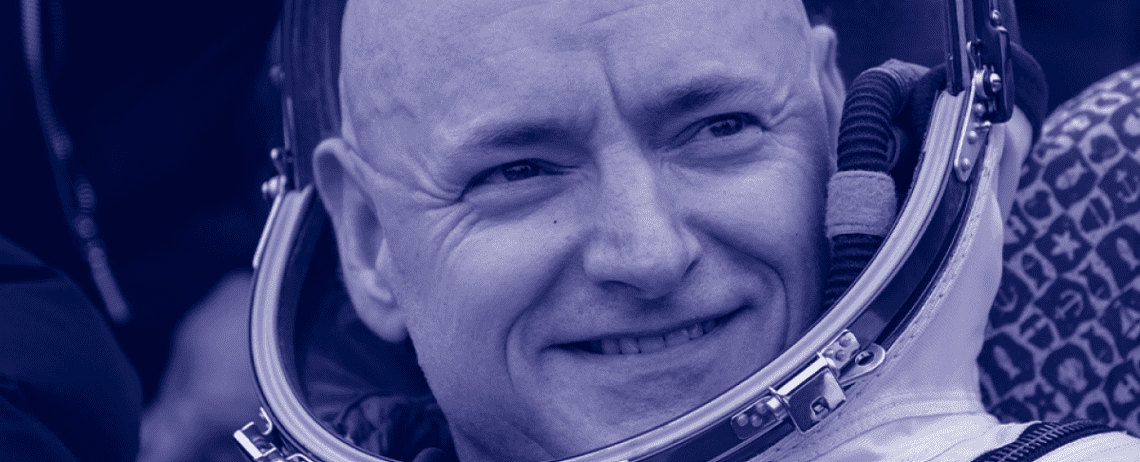
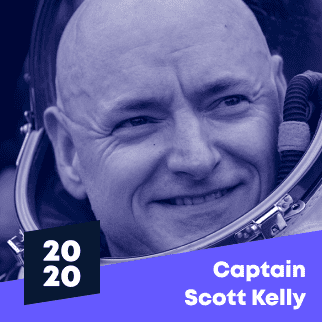
Captain Scott Kelly is a retired NASA astronaut who commanded the International Space Station and was the first person to spend an entire year in space.
Scott completed two long-duration space station missions and two shorter-duration space shuttle missions between 1999 and 2015. Overall, he spent 520 days away from earth. His memoir, Endurance: My Year in Space and Our Journey to Mars, is a New York Times best-seller.
He shared his gripping story with us at our From Surviving To Thriving Virtual Summit event.
As an astronaut, Scott was faced with challenges during missions on a daily basis. His extraordinary journey enabled him to learn a thing or two about endurance – staying resilient through the tough times and being able to adapt at a moment’s notice.
As businesses, we can learn a lot from these masters of adaptation – the unique individuals who embraced failures in the midst of extreme adversity. Companies that thrive, not just survive are the ones who embrace challenges and have a positive outlook for the future.
Scott Kelly draws on his personal experience, which can serve as useful tips for businesses that are navigating uncertainty:
1. Pay attention; every detail matters
Scott Kelly admits he wasn’t a great student – but he ended up as a fantastic astronaut. Being an astronaut involves a lot of engineering work, where every action needs to be error-free. In the perilous atmosphere of space, every minute detail matters. For Captain Kelly, harnessing his attention span was key to the career of his dreams.
As a youngster, he struggled with paying attention – so much so he admits that he ‘probably would have been diagnosed with ADHD’ in today’s world. This meant that in the following years, his attention and focus had to be trained like a muscle in order for him to successfully complete his studies and carry out missions successfully.
This ability to focus his attention on things that matter is a skill most businesses can practice during COVID-19. It’s critical to stay on top of ever-evolving guidance and employ digital checklists – because one wrong move could spell the end of your business or endanger the health of your staff and customers. Technology can help sharpen our focus, making sure every detail and element of risk is accounted for in business operations.
2. Build personal determination, even when feeling isolated
In the vastness of space, you’ve only got yourself to rely on. Living on a space station, Scott’s days were rigorously structured, and the lines between home and work were continually blurred. Over various missions spanning 520 days, he felt the strain of isolation and personal accountability.
Similarly in a global pandemic, everyone is shouldering a similar sense of responsibility. We’re all feeling the pressure, the uncertainties, and the weight of potential changes and disruptions to our lives and daily processes.
This is why building personal determination is crucial. It starts with making that decision, that commitment to yourself to endure the hard times. Scott relied on some motivational reading material while on space missions – the book ‘Endurance: Shackleton’s incredible voyage’ by Alfred Lansing. This helped him to gain perspective and mental fortitude.
After spending an entire year in space, Scott adopted some key practices that cemented his personal determination. One of those was the importance of having structure and routine in isolation, finding moments to ‘unplug’ as you give yourself ample time to recharge and fight another day.
If you find that your mental energy reserves are waning, try journalling, like Scott Kelly did up in space. It’s been found to be an extremely effective and cathartic tool for helping to alleviate some of the stresses faced when in a period of adversity.
3. Adapt through the hard times, be fluid in your response
While in space, Scott had to wait for resupply ships that kept malfunctioning and exploding, forcing him to adapt his expectations and look for an alternative solution. In a high-pressure situation like this, disruptions were common. His work on missions included tasks such as routing cables for new docking ports, performing science experiments and fixing the cooling system. Weeks or months of calm could go by until they were suddenly interrupted by a life-or-death situation, meaning he had to adapt and act quickly.
In business, we all understand this scenario of adaptation to some degree. You might be working on something – and then it malfunctions. You need to find a solution – and fast. What had been going smoothly up until this moment is no longer the way to do things.
Adaptation is the key to thriving. Having a flexible approach at all times means that even if you spent twelve months working on getting a process just right, you’re adaptable enough to throw it away at a moment’s notice if the situation calls for it. Scott’s leadership style had to change according to the situation. A crisis onboard may call for him to command with clear instruction – no questions asked, while other less important decisions could be taken more collaboratively with fellow astronauts.
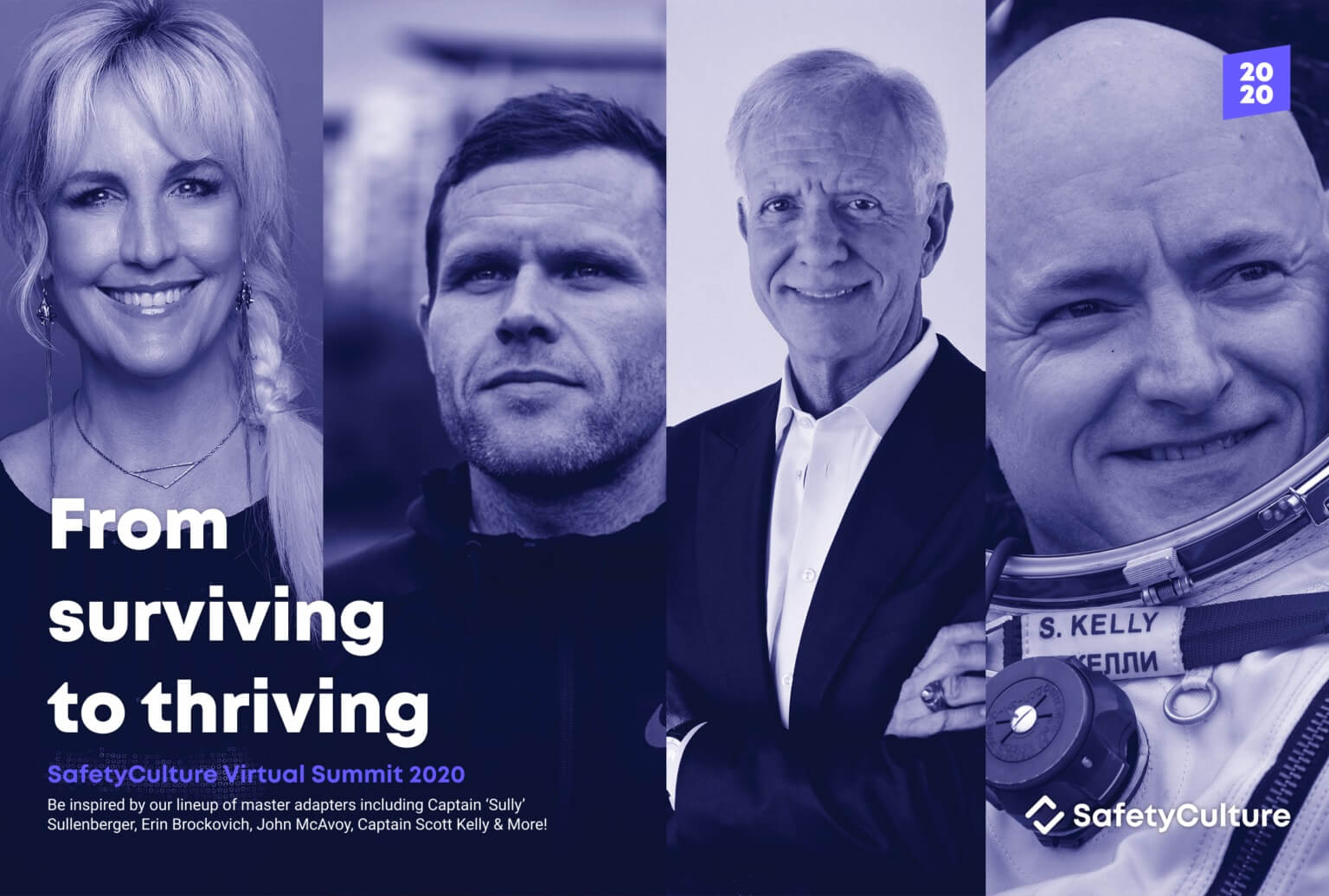
Important Notice
The information contained in this article is general in nature and you should consider whether the information is appropriate to your specific needs. Legal and other matters referred to in this article are based on our interpretation of laws existing at the time and should not be relied on in place of professional advice. We are not responsible for the content of any site owned by a third party that may be linked to this article. SafetyCulture disclaims all liability (except for any liability which by law cannot be excluded) for any error, inaccuracy, or omission from the information contained in this article, any site linked to this article, and any loss or damage suffered by any person directly or indirectly through relying on this information.
